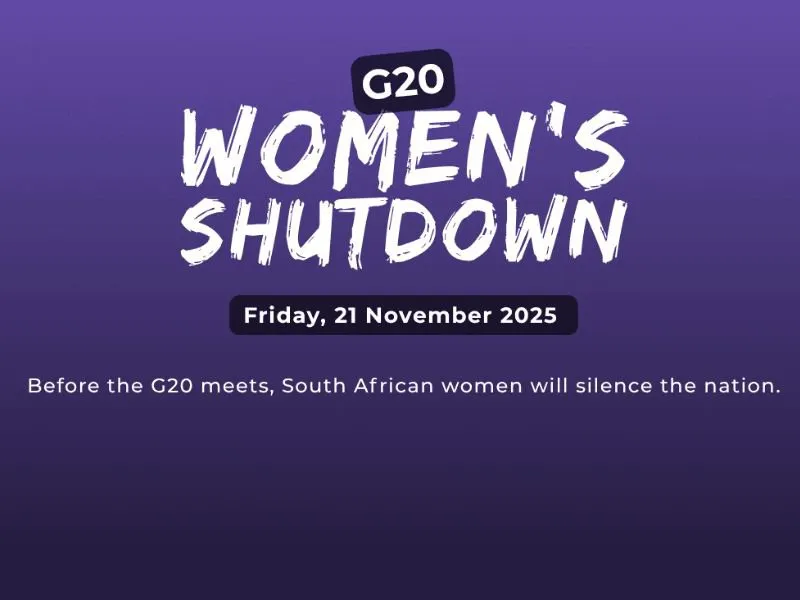South Africa National Shutdown Set for 21 November Over GBV Crisis
A major national shutdown has been called in South Africa for 21 November, organised by Women for Change and supported by thousands of citizens, aiming to draw urgent attention to the country’s escalating crisis of gender‑based violence (GBV). The timing is significant—it coincides with the incoming G20 Summit hosted in Johannesburg, when global leaders will be watching. The shutdown seeks to show the economic and social impact of the issue by halting work, spending and ordinary daily activity to force the government’s hand.
SIMILAR: Julius Mkhwanazi Suspension in Ekurhuleni: What We Know So Far
Table of Contents
What Exactly is the Shutdown?
The shutdown is being described by Women for Change as a “silence the nation” movement. Participants are encouraged to refrain from all paid and unpaid work, avoid making purchases or withdrawing money, wear black or purple, and observe a 15‑minute complete standstill at noon. The goal is to demonstrate how much women and LGBTQI+ communities contribute—and how much is lost when they do not participate due to violence and insecurity.
Why Now? The GBV Context
South Africa faces alarming statistics when it comes to violence against women and femicide. According to recent reporting, the rate of femicide in the country is significantly higher than global averages — prompting activists to demand the issue be declared a national disaster. With the G20 gathering imminent, organisers say international attention will be focused on South Africa, making it a strategic time to amplify the message.
The Impact & What to Expect
Because the shutdown is intended to touch every level of society, it may lead to disruptions in business, public transport and communal life. Vehicle traffic, commerce and operational systems could all be affected especially in Johannesburg and surrounding Gauteng province, where preparations for the G20 are in full swing.
However, organisers emphasise that the aim is not to incite violence, but to demonstrate economic and social leverage – to show what happens when a significant portion of the population withdraws support and labour.
What the Government Says
Government bodies have acknowledged the call, but also reminded citizens of their obligations around work and essential services. There may be tensions if pressure builds from multiple sectors. Organisations like the Human Sciences Research Council have also pointed to the need for measured responses and careful coordination to avoid harm to the economy or unintended consequences.
What This Means for Businesses and Individuals
For businesses: planning ahead is key. Employers may need to consider staffing, operational adaptation and the possibility of reduced productivity. For individuals: the shutdown offers a moment of solidarity—but also a call to reflect on the deeper issue of GBV, how it affects family and community life, and what action can be taken locally.
Closing Thoughts
The national shutdown set for 21 November is not just a protest—it is a strategic moment of collective withdrawal aimed at spotlighting one of South Africa’s most urgent crises: the rampant violence against women and LGBTQI+ persons. With global eyes on the country because of the upcoming G20, the event has the potential to shift conversations and force governmental accountability. Whether it will lead to concrete change remains to be seen—but the country is gearing up for a significant day of action.
Check more E NEWS articles;
- Marco Hall Net Worth 2023
- How do you show true love?
- Aaron Krause Net Worth 2023
- Richard Hilton Net Worth 2023
- Michael Rapaport Net Worth 2023
- Ratiba ya Mitihani ya Darasa la Nne 2025
- Matokeo ya kidato cha sita 2025 Haya Hapa
- Ratiba ya Mitihani ya Kidato cha Pili (CSEE) 2025
- Ratiba ya Mitihani ya Kidato cha Nne (CSEE) 2025








